Ford Explorer EV vs Mazda CX-60 – Which model is better for everyday use?
Both models have their strengths – but which one suits you more?
Compare performance, efficiency, price and space directly: Ford Explorer EV or Mazda CX-60?
Here’s where it gets real: The technical differences in detail
Costs and Efficiency: When it comes to price and running costs, the biggest differences usually appear. This is often where you see which car fits your budget better in the long run.
Ford Explorer EV has a distinctly advantage in terms of price – it starts at 34200 £, while the Mazda CX-60 costs 41900 £. That’s a price difference of around 7705 £.
As for range, the Ford Explorer EV performs markedly better – achieving up to 602 km, about 538 km more than the Mazda CX-60.
Engine and Performance: Power, torque and acceleration say a lot about how a car feels on the road. This is where you see which model delivers more driving dynamics.
When it comes to engine power, the Ford Explorer EV has a barely noticeable edge – offering 340 HP compared to 327 HP. That’s roughly 13 HP more horsepower.
In acceleration from 0 to 100 km/h, the Ford Explorer EV is hardly any quicker – completing the sprint in 5.30 s, while the Mazda CX-60 takes 5.80 s. That’s about 0.50 s faster.
In terms of top speed, the Mazda CX-60 performs a touch better – reaching 219 km/h, while the Ford Explorer EV tops out at 180 km/h. The difference is around 39 km/h.
There’s also a difference in torque: the Ford Explorer EV pulls a bit stronger with 679 Nm compared to 550 Nm. That’s about 129 Nm difference.
Space and Everyday Use: Beyond pure performance, interior space and usability matter most in daily life. This is where you see which car is more practical and versatile.
Both vehicles offer seating for 5 people.
In curb weight, the Mazda CX-60 is slight lighter – 1890 kg compared to 1908 kg. The difference is around 18 kg.
In terms of boot space, the Mazda CX-60 offers visibly more room – 570 L compared to 450 L. That’s a difference of about 120 L.
In maximum load capacity, the Mazda CX-60 performs a bit better – up to 1726 L, which is about 304 L more than the Ford Explorer EV.
When it comes to payload, Mazda CX-60 barely noticeable takes the win – 612 kg compared to 585 kg. That’s a difference of about 27 kg.
All in all, the Ford Explorer EV shows itself to be outperforms the competitor in nearly every area and secures the title of DriveDuel Champion.
It impresses with the more balanced overall package and proves to be the more versatile companion for everyday use.
Ford Explorer EV
The Ford Explorer EV marks a significant step forward in the brand's journey towards electrification, offering an impressive blend of performance and sustainability. This modern SUV features a sleek design complemented by advanced technology that enhances the driving experience. With a focus on comfort and innovation, the Explorer EV aims to redefine family travel for the electric age.
details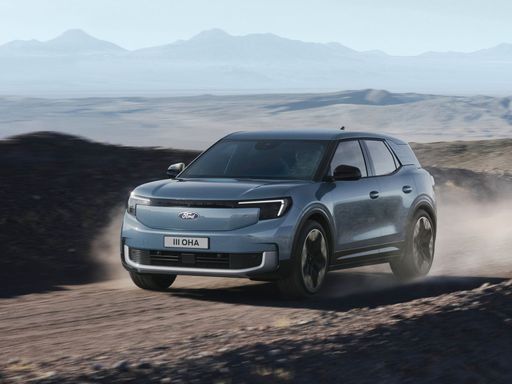 @ electricexplorer.fordpresskits.com
@ electricexplorer.fordpresskits.com
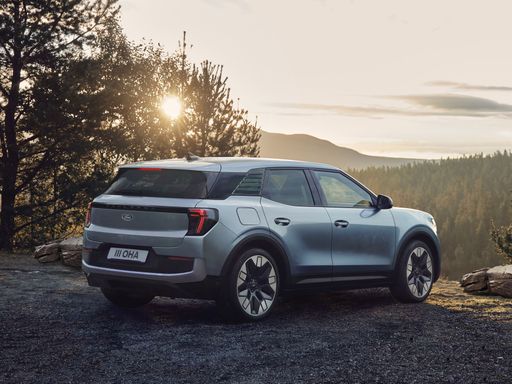 @ electricexplorer.fordpresskits.com
@ electricexplorer.fordpresskits.com
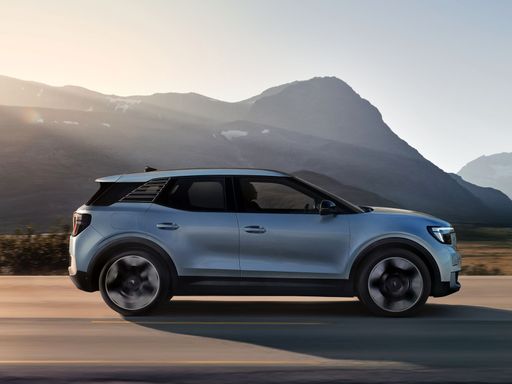 @ electricexplorer.fordpresskits.com
@ electricexplorer.fordpresskits.com
Mazda CX-60
The Mazda CX-60 exudes a sense of elegance and sophistication with its sleek design and refined styling. Inside, the cabin offers a harmonious blend of comfort and advanced technology, ensuring an enjoyable driving experience. On the road, the CX-60 delivers impressive performance and handling, making it a standout choice for those who appreciate driving dynamics.
details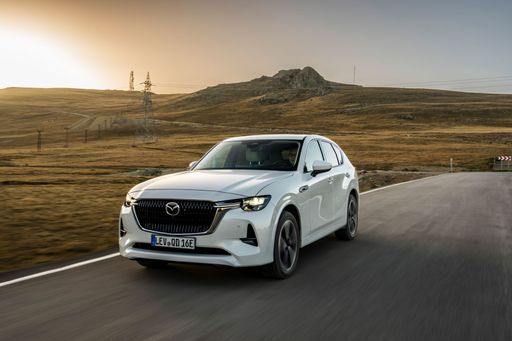 @ de.mazda-press.com
@ de.mazda-press.com
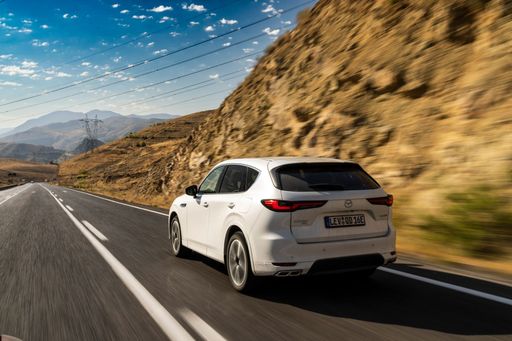 @ de.mazda-press.com
@ de.mazda-press.com
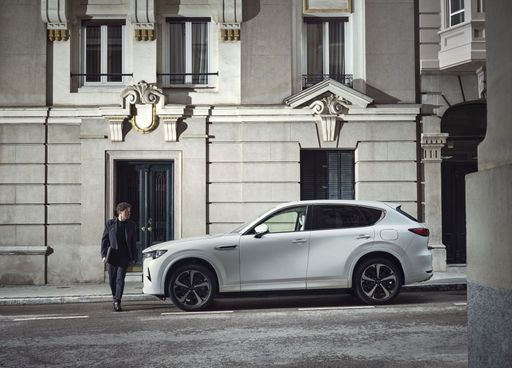 @ de.mazda-press.com
@ de.mazda-press.com
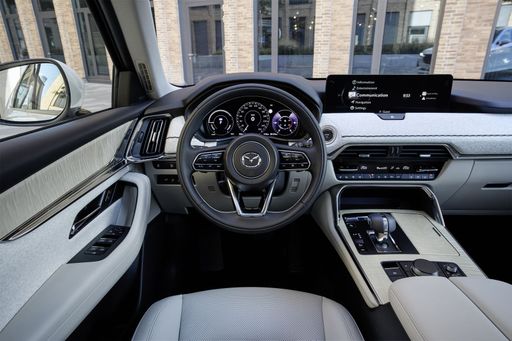 @ de.mazda-press.com
@ de.mazda-press.com

|

|
|
|
|
Costs and Consumption |
|
|---|---|
|
Price
34200 - 48800 £
|
Price
41900 - 56800 £
|
|
Consumption L/100km
-
|
Consumption L/100km
1.4 - 5.4 L
|
|
Consumption kWh/100km
14.5 - 17.2 kWh
|
Consumption kWh/100km
-
|
|
Electric Range
360 - 602 km
|
Electric Range
64 km
|
|
Battery Capacity
52 - 79 kWh
|
Battery Capacity
-
|
|
co2
0 g/km
|
co2
31 - 139 g/km
|
|
Fuel tank capacity
-
|
Fuel tank capacity
50 - 58 L
|
Dimensions and Body |
|
|---|---|
|
Body Type
SUV
|
Body Type
SUV
|
|
Seats
5
|
Seats
5
|
|
Doors
5
|
Doors
5
|
|
Curb weight
1908 - 2179 kg
|
Curb weight
1890 - 2055 kg
|
|
Trunk capacity
445 - 450 L
|
Trunk capacity
570 L
|
|
Length
4468 mm
|
Length
4745 mm
|
|
Width
1871 mm
|
Width
1890 mm
|
|
Height
1630 - 1639 mm
|
Height
1680 - 1688 mm
|
|
Max trunk capacity
1417 - 1422 L
|
Max trunk capacity
1726 L
|
|
Payload
561 - 585 kg
|
Payload
581 - 612 kg
|
Engine and Performance |
|
|---|---|
|
Engine Type
Electric
|
Engine Type
Plugin Hybrid, Diesel MHEV
|
|
Transmission
Automatic
|
Transmission
Automatic
|
|
Transmission Detail
Reduction Gearbox
|
Transmission Detail
Automatic Gearbox
|
|
Drive Type
Rear-Wheel Drive, All-Wheel Drive
|
Drive Type
All-Wheel Drive, Rear-Wheel Drive
|
|
Power HP
170 - 340 HP
|
Power HP
200 - 327 HP
|
|
Acceleration 0-100km/h
5.3 - 8.7 s
|
Acceleration 0-100km/h
5.8 - 8.4 s
|
|
Max Speed
160 - 180 km/h
|
Max Speed
200 - 219 km/h
|
|
Torque
310 - 679 Nm
|
Torque
450 - 550 Nm
|
|
Number of Cylinders
-
|
Number of Cylinders
4 - 6
|
|
Power kW
125 - 250 kW
|
Power kW
147 - 241 kW
|
|
Engine capacity
-
|
Engine capacity
2488 - 3283 cm3
|
General |
|
|---|---|
|
Model Year
2024 - 2025
|
Model Year
2024
|
|
CO2 Efficiency Class
A
|
CO2 Efficiency Class
B, D, E
|
|
Brand
Ford
|
Brand
Mazda
|
What drive types are available for the Ford Explorer EV?
The Ford Explorer EV is available as Rear-Wheel Drive or All-Wheel Drive.
The prices and data displayed are estimates based on German list prices and may vary by country. This information is not legally binding.
